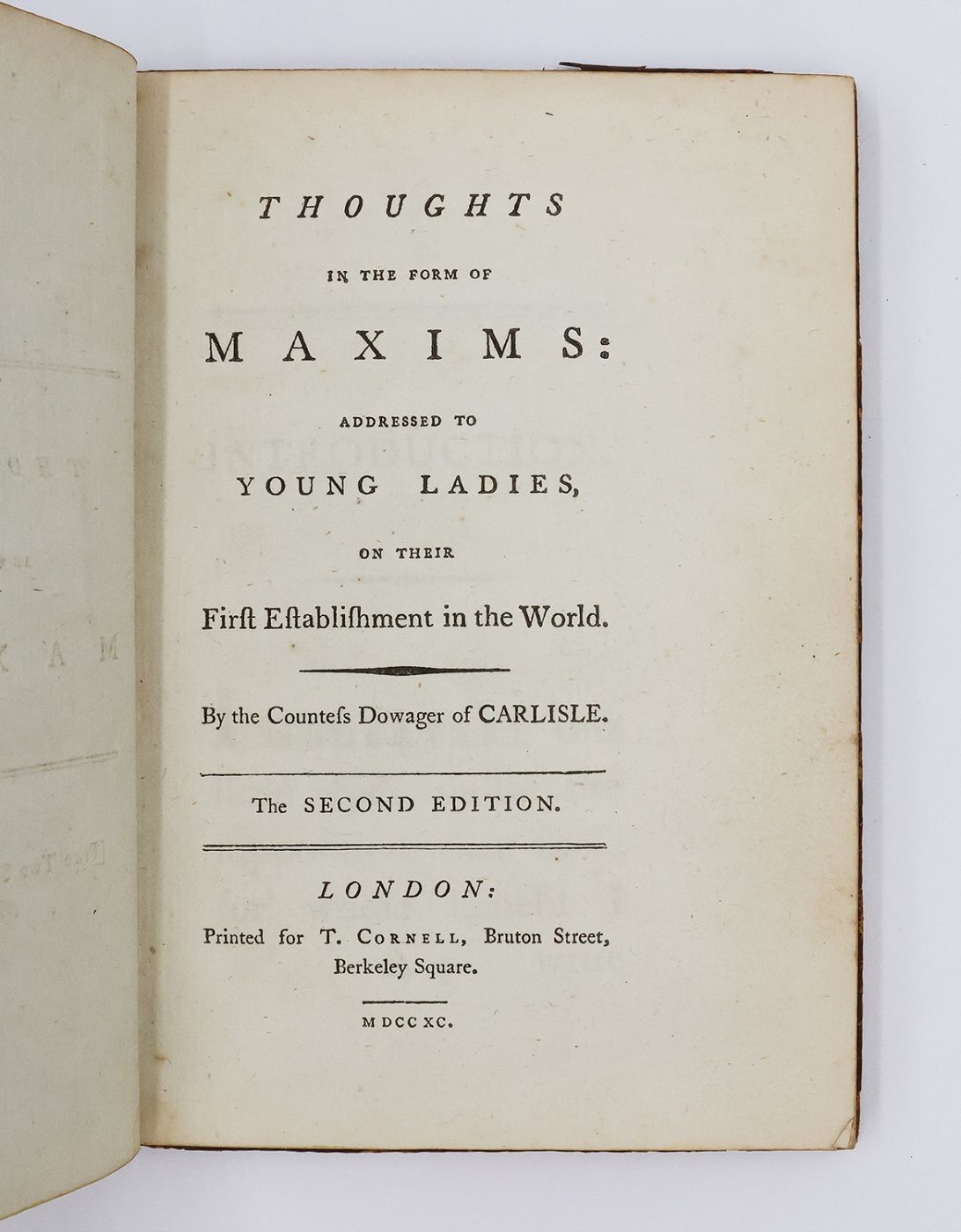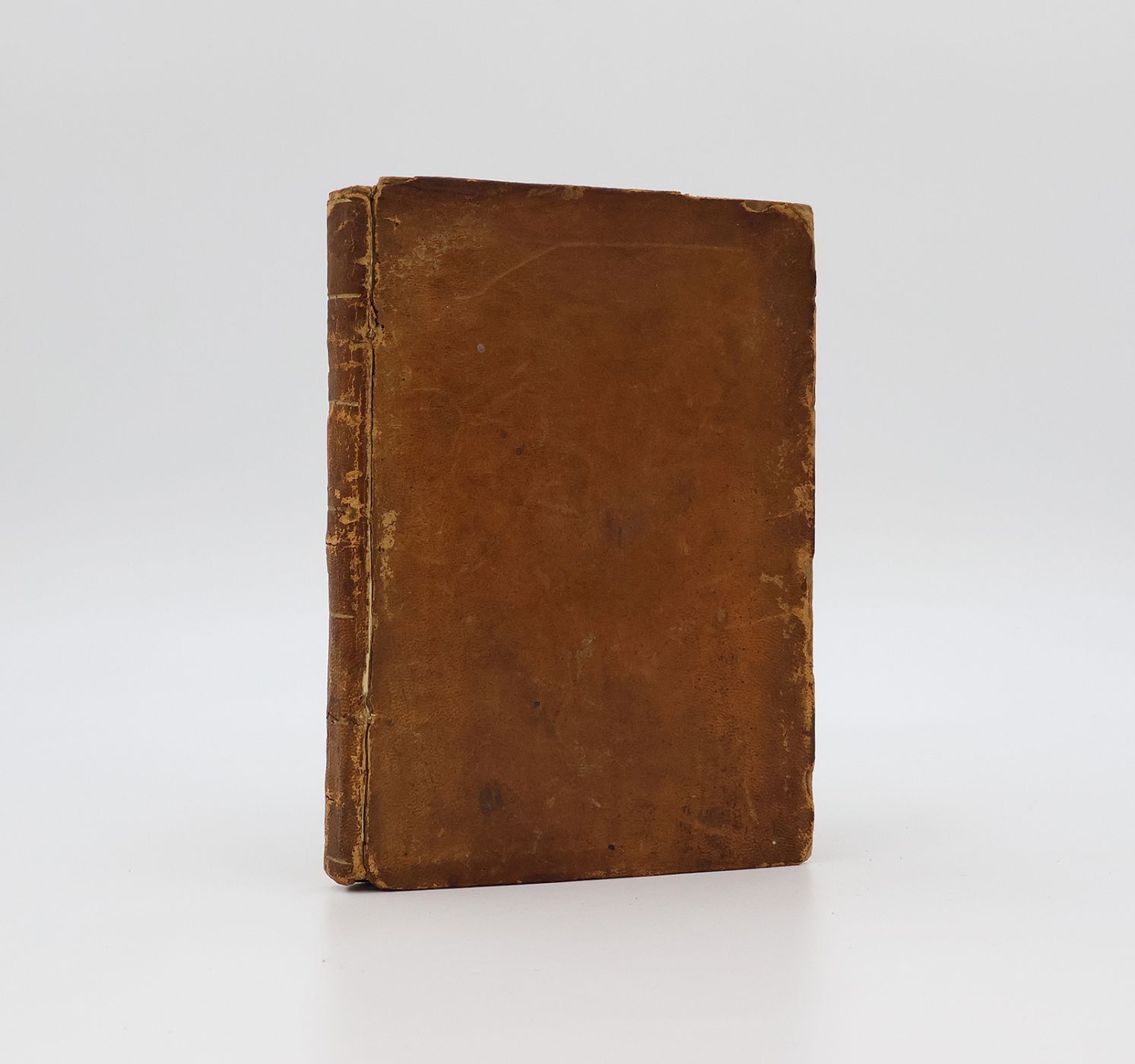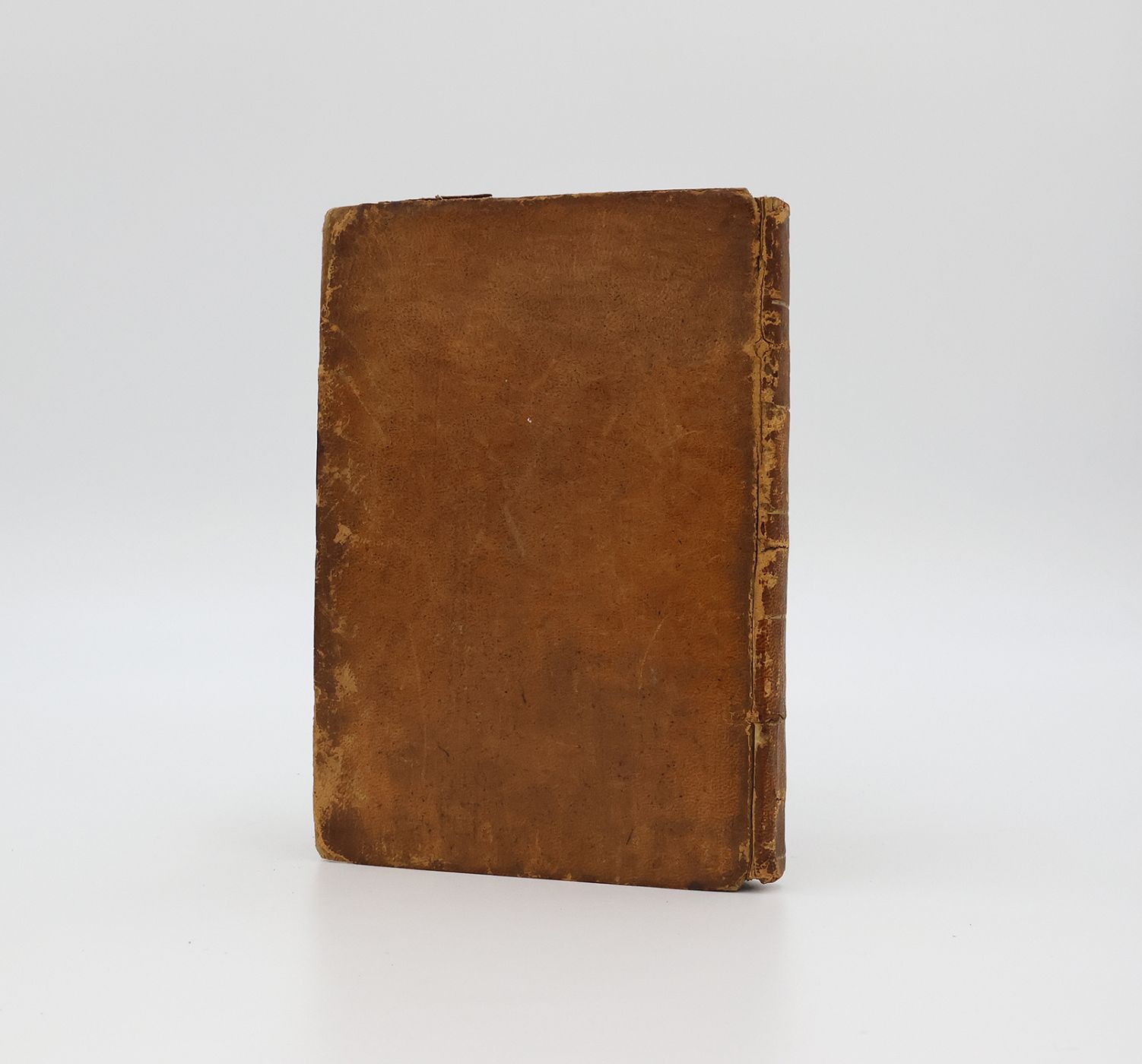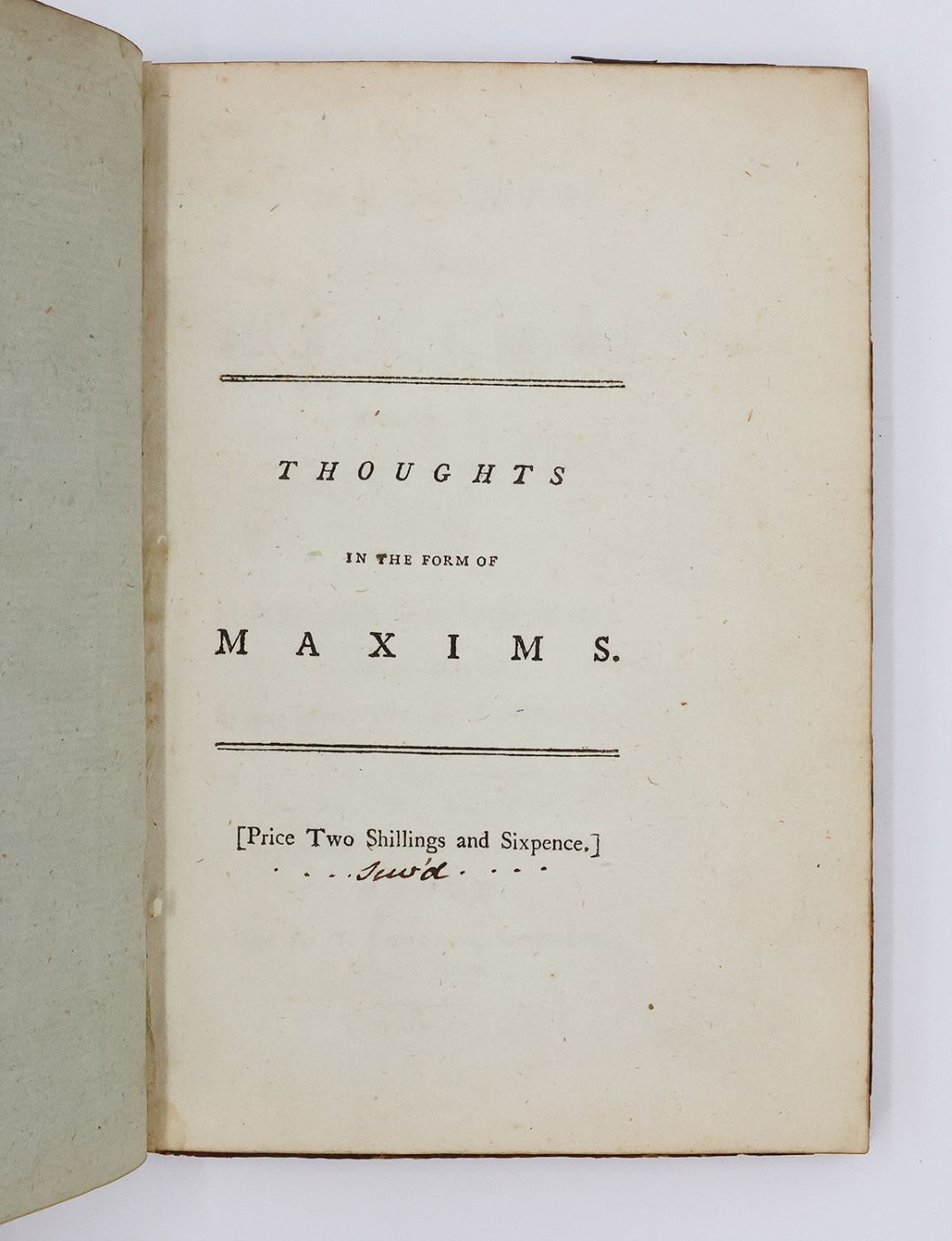THOUGHTS IN THE FORM OF MAXIMS: Addressed to Young Ladies, on Their First Establishment in the World.
Second edition. Contemporary brown calf ruled in gilt to the spine. A near very good copy, the leather worn and chipped at the extremities with cracking at the spine and hinges, the binding however is holding firm. The contents, with a previous owner's inscription to the front pastedown, front free endpaper (in pencil), and the half-title, some toning at the edges of the endpapers and a little faint toning and spotting throughout, are otherwise clean and bright. Scarce.
A book of short pieces of life advice for young women encompassing a wide variety of subjects, from the practical to the philosophical, including conduct towards one's husband, treatment of servants, fashion, social conduct, amateur dramatics, the refinement of one's mind, letter writing, friendship, the possession and loss of beauty and coming to terms with mortality. The maxims were penned by Isabella Howard, née Byron, Dowager Countess of Carlisle (1721-1795), the second wife of the 4th Earl of Carlisle, Henry Howard of Castle Howard in North Yorkshire, and great aunt of the notorious poet Lord Byron. Isabella's book of maxims is particularly interesting when set against the context of her life; despite the images of respectability conjured by both the very concept of a guide to social conduct and the book's frequent urgings towards restraint and moderation, Isabella contrastingly repeatedly rebelled against her family's wishes and society's expectations, living an unconventional life characterised by adventure and drama. Isabella's marriage to the Earl of Carlisle produced five children and evidence suggests she was contented at Castle Howard, taking an interest in the running of the kitchen garden and producing a book of recipes and remedies (indeed, in 'Maxims' she claims that "A degree of knowledge in gardening and farming... will not only save you from weariness of mind, but also preserve your health of body"). However, in 1758 the Earl of Carlisle, who was 28 years older than his wife, died, and Isabella shocked society by remarrying only a year later. Her marriage to Sir William Musgrove, 16 years her junior, required Isabella to relinquish her custody of her children and her right to the Howard estate, in accordance with instructions in her first husband's will. The marriage eventually broke down and the couple separated in 1769, after which Isabella travelled to Europe. She lived between France, Switzerland, Italy and Germany for over a decade while indulging her love of art (a number of her etchings and drawings are held by the British Museum), poetry and music; reputedly engaging in multiple affairs; accumulating debt and refusing to return to England in defiance of her family's repeated pleas. She also began working on 'Maxims' during this period. She eventually returned to England in the late 1780s where she secured a publisher for 'Maxims', which was first issued in 1789, and lived modestly, her access to money and society now reduced by her damaged reputation, until her death in 1795. Despite some words of advice mimicking the constricting expectations of women that were ubiquitous at the time, such as warning against behaviours and interests unbecoming of the female sex (for example, laughing too loudly and politics), a desire to ensure an enjoyable life and a sense of self-assuredness for the female reader that reflects Isabelle's choices can be pieced together from the pages of 'Maxims', such as her recommendation to choose solitude over the company of those who would "destroy your happiness", to "pursue the rules you have laid down with firmness", to "let none share your bounty, whose conduct and character do not merit it", that when abandoned by false friends "you are better without them" and to avoid "Too great a degree of timidity". An excellent artefact of the complex nuances of 18th century upper-class womanhood and of the life of a truly fascinating woman.
Stock code: 28559
£200
Published:
London: T. Cornell.
1790
Category
Non-fictionBindings
Recent Acquisitions
Politics / Philosophy





